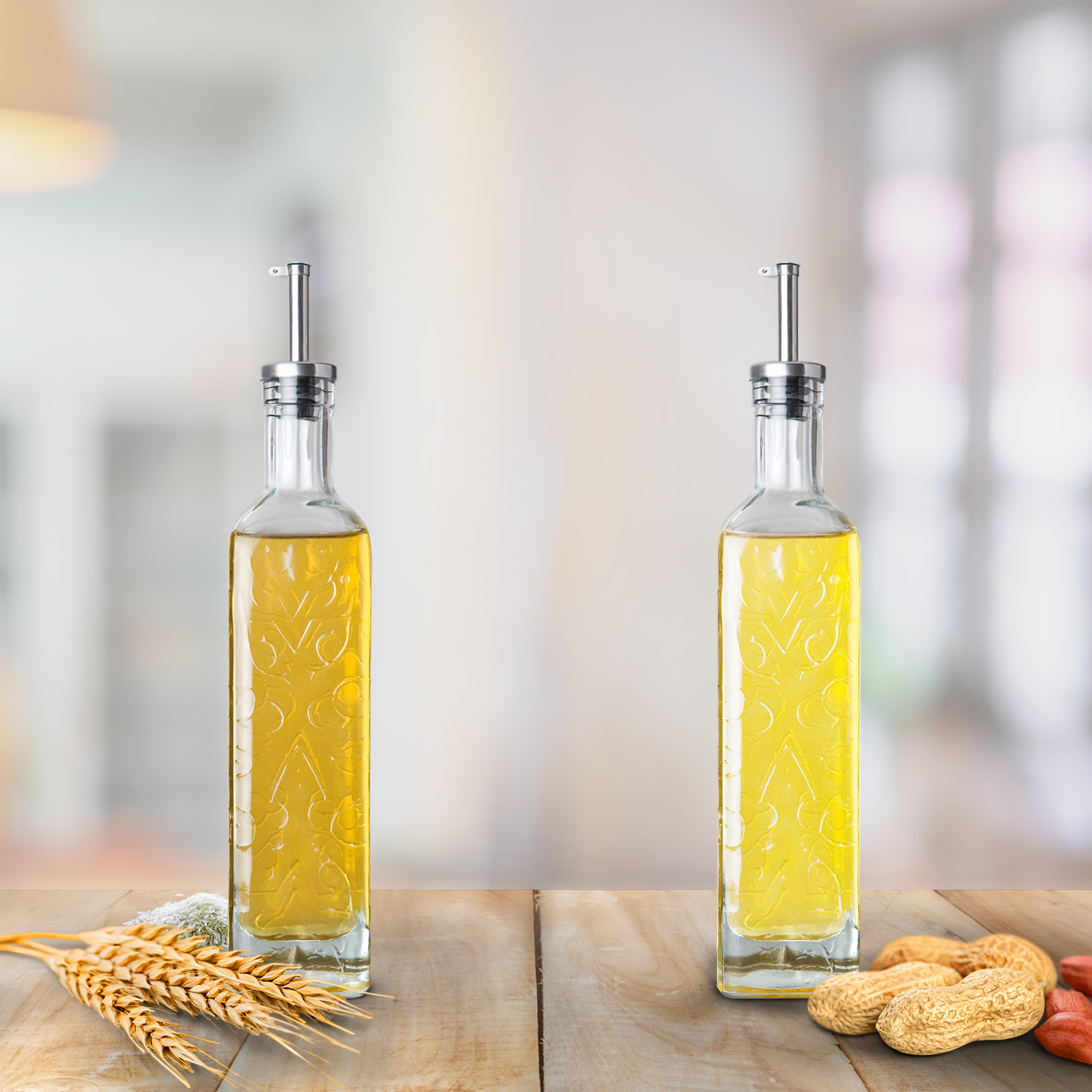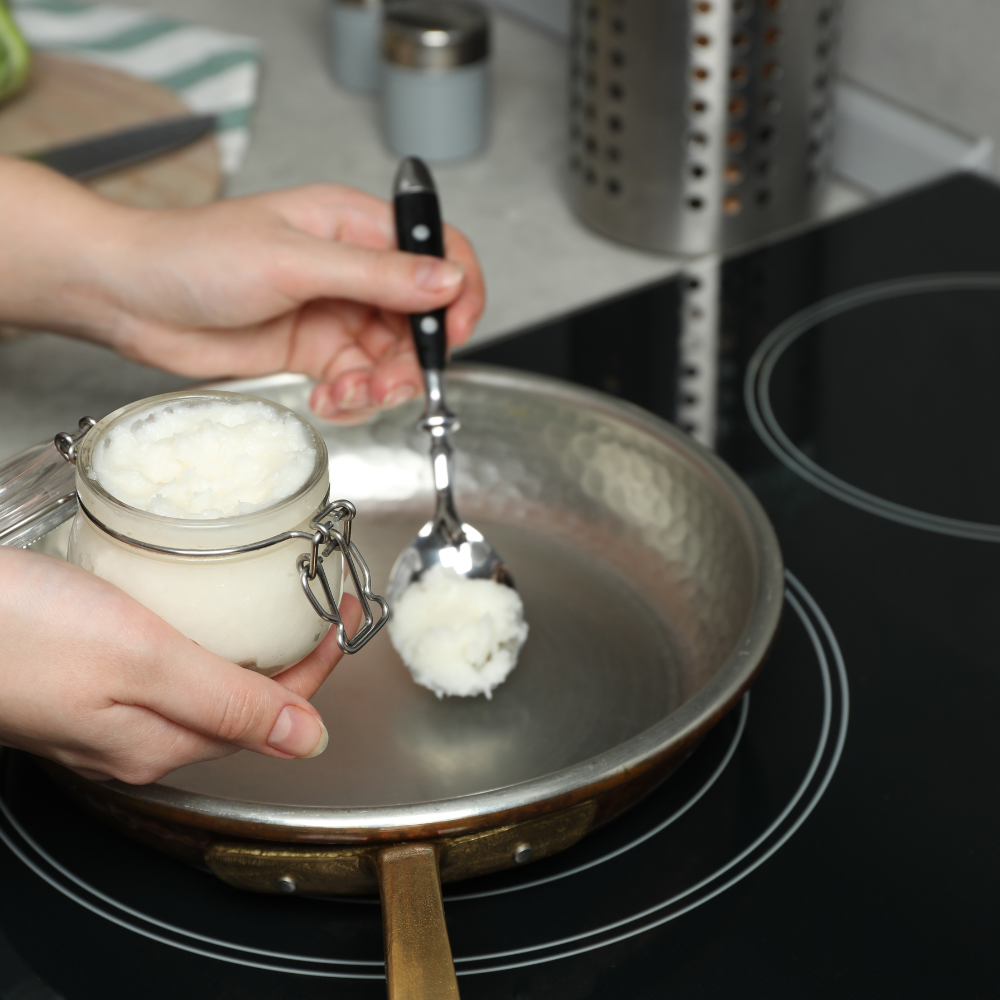Who doesn’t love delicious food? The deliciousness of Indian cuisine is admired globally. World-renowned chefs like Gordon Ramsay, Gary Mehigan, and more, all praise the flavours of India, and are inspired by them.
Most of them are fascinated by how oils are used to carry flavours across the dish. Some are fascinated by pungent mustard oil, while others are intrigued by ghee and coconut oil.
Plus, there are arrays of oils, making it even harder to find which oil is best for Indian cooking without compromising its flavours and nutritional value.
Don’t you worry! This blog addresses the issue of finding the best cooking oil according to various health conditions without depriving flavours. By the end of this blog, you can make an informed choice about selecting the best oil for cooking in India.
|
Table of Contents
|
Let’s see the different varieties of oil that are readily available in the market.
Readily Available Healthy Cooking Oils for Indian Cuisine
Oils have been part of our daily lives, knowingly or unknowingly. They are used for cooking, body massages, oil pulling, aromatherapy, and so on.
Oils, when used correctly, promote overall health and wellness. Our focus today is on exploring which oil is best for Indian cooking among the various cold-pressed and wood-pressed oils.
So, here are 7 selective wood-pressed and cold-pressed healthy oil for Indian cooking, that are easily available and provide numerous health benefits when used in cooking.
- Ghee or clarified butter
- Coconut oil
- Mustard Oil
- Groundnut Oil
- Sesame Oil
- Safflower Oil
- Olive Oil
The benefits of these oils and how to buy and use them have been covered in previous blogs. You can easily find them in the recommended articles.
Now, if you use any of the oils, then you must know 5 qualities about them. Take a look, as they will help you find which oil is best for cooking in India!
What Are the 5 Must-Have Qualities of a Healthy Oil

Oil is only referred to as healthy when it is close to its natural state. But during the extraction process of oil from seeds, a lot of changes occur.
That’s why it's important to buy healthy oil to enjoy its health benefits. The 5 qualities of the best cooking oil are:
Unrefined Oil
Make sure the oil is unrefined and made only by the wood-pressed or cold-pressed method. The unrefined oil has a higher nutrient content.
High Smoke Point
The smoke point is the temperature that indicates the safe temperature of the oil. Low-smoke point oils are ideal for low-heat cooking, and vice versa.
Several unrefined oils have a high smoke point (coconut oil, groundnut oil), while many have a lower smoke point (olive oil).
Balanced Fatty Acid Composition
Oils are made of fats or fatty acids (Mono-unsaturated and poly-unsaturated fatty acids, triglycerides, trans fats, etc.). They are responsible for the increase or decrease of good and bad cholesterol in the body.
The fatty acids in oils should be in a balanced proportion. Also, no vegetable oil has cholesterol.
Free of additives and preservatives
Make sure the oil is free of any additives and preservatives. They degrade the quality of oil and may adversely affect health in the long run. Most refined oils have these to improve their appearance, stability, and shelf life.
Organically Produced
It is a no-brainer that organically grown oil seeds yield healthier and more tasty oil compared to inorganic oil seeds.
So, the best oil product should be unrefined, preservative-free, organically grown, have a high smoke point, and have a good proportion of fatty acids to provide maximum health benefits and be value for money.
Now that you know how to buy oils; the next thing to consider is which oil is best for you or your family member’s health condition.
Oils have different properties, making them suitable for various health problems. Let’s see where you can use the above-listed 7- oils and, amongst them, which oil is best for Indian cooking.
Different Oils For Different Purposes/ Best-Suited Oils to Cook with Different Health Conditions
The human body is prone to several ill effects, including heart diseases, blood pressure issues/ hypertension, high cholesterol, Diabetes, deficiencies, fatty liver, obesity, etc. are just a few of the most commonly known health problems.
The primary goal of cooking is to create meals filled with ingredients that improve these health problems. Especially in Indian cooking, oils are used as a carrier for including the much-required fatty acids to balance a meal.
However, no one oil has all kinds of fatty acids. That’s why, for various health conditions, it's important to choose the right oil.
The chart below is about the 7 healthy oils and the health conditions under which they can be used for cooking.
|
Unrefined Oil |
Ideal for Cooking in Following Health Conditions |
|
Ghee or Clarified butter |
Weak bone-to-muscle elasticity, and arthritis. Poor bone health, skin health, digestion, brain health, and eye health. Constipation, poor absorption, and a weak immune response. In pregnancy and postpartum recovery. |
|
Coconut oil (wood-pressed or Cold-pressed) |
For high cholesterol, inflammation, arthritis, and fatty liver disease. For type II diabetes Treatment of Alzheimer’s, poor brain function, and memory loss To lower bad cholesterol and high blood pressure For gallbladder disease and pancreatitis For gum and tooth disease In cases of poor bone health causing osteoporosis Weight management, burning excessive fat Source: Dr.Axe |
|
Mustard Oil (wood-pressed or Cold-pressed) |
Ideal for heart diseases, high blood pressure, and high cholesterol For reducing inflammation, joint pain In diabetes, to reduce blood sugar levels Deficiency of omega-3 fatty acids |
|
Groundnut Oil (wood-pressed or Cold-pressed) |
Beneficial for diabetes, heart disease, Alzheimer’s, and high cholesterol. Poor bone health, joint pains and arthritis |
|
Sesame Oil (wood-pressed or Cold-pressed) |
Heart conditions, high cholesterol, and high blood pressure Ideal for controlling diabetes Reducing inflammation |
|
Safflower Oil (wood-pressed or Cold-pressed) |
Heart conditions, diabetes, high blood pressure,and high cholesterol To improve blood circulation and bone health To reduce the chances of breast cancer and tumour For weight loss, fat burn |
|
Olive Oil (wood-pressed or Cold-pressed) |
Heart conditions, weak immunity, poor gut health Cholesterol issues, inflammation, and type 2 diabetes Weight Loss For poor bone health, joint pain, and arthritis |
So, which oil is best for Indian cooking or specifically for your kind of cooking? Still not sure?
Alright, no worries! Head down below to know the best suitable oils for different cooking methods.
How to Choose Cooking Oil for Different Techniques Used in Indian Cooking
The Indian cooking method, or any cooking method, is all about the highs and lows of heat/ temperature. The type of cooking method depends on the food being cooked, and that’s when people usually forget about the suitability of cooking oil. Not all oils are suited for high-and dry-heat cooking.
Therefore, it is important to select the right oil for any cooking technique. Otherwise, you will end up burning oil, spoiling food flavours, and affecting your health. Let’s see different oils and their suitability for various cooking methods.
The data below has been gathered from various sources and gives a general idea about the approximate temperature range for different cooking methods – based on which oils are recommended.
|
Cooking Method |
Temperature Range |
Recommended Cooking Oil |
|
Tempering or Tadka |
140 to 180 degrees Celsius |
Coconut oil, groundnut oil, sesame oil, ghee, mustard oil, and safflower oil |
|
Pan Frying/ Sauteing Indian recipes only |
110 to 140 degrees Celsius |
Coconut oil, groundnut oil, sesame oil, ghee, mustard oil, safflower oil, and olive oil |
|
Deep Frying/ shallow frying |
170 to 190 degrees Celsius |
Ghee, coconut oil, safflower oil, mustard oil, and groundnut oil |
|
Air Frying |
For Max 180 degrees Celsius |
Ghee, mustard oil, coconut oil, groundnut oil, and safflower oil |
|
Baking |
For max 180 degrees Celsius For above 180 degrees Celsius |
Coconut oil, safflower oil, groundnut oil, and mustard oil Only ghee! |
That should clear the smoke around which oil is best for Indian cooking, isn’t it?
Pro-Tip: Use Blends of Oils to maximise health benefits and enhance the flavours of your meals.
FAQ: Which oil is best for Indian cooking?
Which cooking oil is most used in India?
India is blessed with an array of oils, and Indian cuisine sure knows which oil is best for what. In general, the oils that are part of the monthly grocery staples of Indians are mustard oil, coconut oil, groundnut oil, sesame oil, and the favourite of all “ghee”.
Which cold-pressed oil is best for Indian cooking?
Cold-pressed or wood-pressed oils are unrefined oils. They are rich in nutrients and flavour, and they are healthy to cook with. The wood-pressed or cold-pressed oils that are ideal for Indian cooking are mustard oil, coconut oil, groundnut oil, safflower oil, and sesame oil.
Which is the healthiest oil to cook with?
The healthiest cooking oil must be organic, unrefined, have a good fatty acid composition, have a high smoke point, and be free from additives and preservatives. A few of them are wood-pressed coconut oil, groundnut oil, safflower oil, sesame oil, and mustard oil. Don’t forget traditionally made ghee.
All of these oils' cold-pressed or wood-pressed forms can withstand high-heat cooking.
Which edible oil is best for heart health in India?
Oils like canola oil and olive oil are some best edible oil in India because of their lower soaked fat substance. They might assist with lessening the gamble of coronary illness when utilized with some restraint.
Which cooking oil is good for health in India?
For a better choice, oils like olive oil and canola oil are great decisions because of their lower soaked fat substance. Notwithstanding, involving various oils with some restraint can likewise be advantageous for generally wellbeing.
Which is the best refined oil for heart?
Olive oil, canola oil, and sunflower oil are considered the best refined oils for heart health due to their high unsaturated fat content.
Conclusion
We hope that now you are well equipped with all the pointers needed to decide “Which oil is best for Indian cooking?”.
Just a reminder: don’t forget that wood-pressed or cold-pressed oils have better nutritional properties and more health benefits than refined oils. Also, remember to cook with oil as per the health condition. Try adding multiple oils in a regulated manner in your cooking to reap maximum benefits.
Two Brothers also offer a range of wood-pressed and cold-pressed oils that are traditionally made and of high quality with natural aromas, flavours, and nutrients. Buy them now!
Read more :
Best Cooking Oil for Diabetic Patients- Know This and Alter Your Diet
9 Niger Seed Oil Benefits: A Hidden Treasure for Health and Wellness










